If you’d prefer to read the full transcript of the episode, you can download that here, or read the full transcript at the bottom of this page.
There’s a lot of confusion about what palliative care is. Part of the problem is that the term is often used interchangeably with hospice, even though they’re not the same thing.
Palliative care refers to services that are designed to ease suffering and improve quality of life at ALL stages of an illness such as Parkinson’s and for an undetermined amount of time, not just end stages. Hospice is a specific subset of palliative care that provides end-stage care usually in the final six months of life.
In other words, palliative care is an approach that improves quality of life for people with Parkinson’s and their families and could provide great benefit from the moment someone receives a Parkinson’s diagnosis.
In this episode with Dr. Maya Katz, you will learn:
- About the full spectrum of palliative care
- The importance of being more precise in our language so that the people who would benefit from it are not scared away by it
- The difference between depression and anxiety
- How to become more resilient so you can live better with Parkinson’s
- The common health consequences that Parkinson’s care partners face
- One of the most important actions you can take to live well with Parkinson’s
Notes
- Using the language of palliative care for Parkinson’s may prevent people who need it from getting it
- Call it supportive care
- Palliative care addresses the whole person
- It starts from the moment of diagnosis
- Palliative care for Parkinson’s has a marketing problem – we’re trying to fix that with new language
- Difference between depression and anxiety is that anxiety is the normal adjustment response to a difficult diagnosis, and it’s tied to grief and guilt
- There’s continued loss with Parkinson’s – loss, grief, resolution, loss, grief, resolution
- True depression and anxiety in people with Parkinson’s is the result of a chemical change in the brain
- Treat it with medications to replenish chemical deficiency and loss of neurotransmitters
- In conjunction with therapy, you can learn the skills needed to deal with difficult emotions
- It can take a year to get used to a Parkinson’s diagnosis
- It’s important to know that it’s a process and there are tools to help you become more resilient (Register for our free, upcoming webinar: How to Build Resilience While Living with Parkinson’s)
- One must have compassion and patience for people who get a Parkinson’s diagnosis
- In our palliative care clinic, we work with care partners individually so that each loved one has dedicated time to discuss their challenges
- There are health consequences to being a Parkinson’s care partner; so, it’s important for care partners to make their own health and well-being a priority as well
- It’s also important to reduce isolation, get out there, set intentions for your days/life and know that health isn’t just about treating symptoms
Concepts Mentioned in this Podcast & Further Reading
- How to Build Resilience While Living with Parkinson’s – Register for the free webinar here
- How to Build Resiliency and Live Well with Parkinson’s
- How to Stay Healthy and Avoid Burnout as a Parkinson’s Care Partner
- How to Reduce Social Isolation While Living with Parkinson’s
- 5 Reasons to Start or Join a Women’s Only Parkinson’s Support Group
- Compassion Fatigue Awareness Project
- Palliative Care and Parkinson’s Disease
- Palliative and Hospice Care Fact Sheet – from the Parkinson’s Foundation
- Social Capital and the Value of Relationships in Parkinson’s
Dr. Maya Katz: It doesn’t mean throw in the towel, there’s nothing left to do. We’ve given up hope. It’s actually the total opposite. You know, we like to think about in palliative care, we do aggressive symptom management. There’s nothing passive about palliative care. It’s actually an incredibly intensive and aggressive holistic approach to care and that’s sort of the main message that you know, I’d like to get across about it because people associate palliative care with hospice. There’s a stigma around it and actually, studieshave shown that even in stage four metastatic cancer patients, if you tell them, I have a palliative care clinic that can provide you with all these different services, people are most likely to say I’m not ready. But if you describe the same services and you call it a supportive care clinic, people say yes. I think that you know, the stigma of palliative care being sort of in those last moments of life prevents people from utilizing this really revolutionary.
Dr. Maya Katz: My mind is revolutionary approach to caring for individuals who have a serious illness but not necessarily the illness. I’m defining serious illness by illness that significantly affects quality of life and all its different aspects, so it’s a pretty broad definition. So we tend not to use palliative care as you know, our clinics are called the supportive care clinic because we just want to bring people in, you know, we want to provide these services and because of where this philosophy of care team from, we know what hinders access to describe it as palliative care. So I think that will change over time, but right now, right now he just wants to bring people in and just offer the services to everyone who needs it. We have people in our clinic has just been diagnosed and just need more support in terms of planning or emotional distress, a lot of grief and guilt that we, that we work within the clinic. Very normal emotions when people get difficult news or difficult situations, that I think is really under-addressed in regular usual care settings. So we actually just finished the first palliative care clinical trials for Parkinson’s. We just completed this last month. It’s been ongoing for three years. We were one of three sites and so we’re analyzing the data right now, but it looks very promising, very positive that palliative care can improve quality of life and for people who have Parkinson’s and also their care partners.
Kelsey Phinney: That was Dr. Maya Katz. She is a neurologist and movement disorder specialist at UCSF and she works at the San Francisco VA. Her specific areas of expertise are deep brain stimulation and the incorporation of palliative care principles for an interdisciplinary to treating people living with Parkinson’s disease and their loved ones.
Kelsey Phinney: This is the Parkinson’s podcast brought to you by the Davis Phinney Foundation. I’m your host Kelsey Phinney and this is our final episode of season one, episode 10 featuring an interview with Dr. Katz and today we’re going to talk about palliative care as a way to treat Parkinson’s from a whole person and whole family perspective and approach from diagnosis onwards. And we’ll also talk a little bit about something that I brought up last week which is the difference between depression as a symptom of Parkinson’s because of chemical deficits in the brain. And then grief, when you are newly diagnosed with Parkinson’s or if symptoms get worse and you lose the ability to do something that you enjoy or love.
Kelsey Phinney: What I wanted to start out with was understanding more about palliative care for Parkinson’s disease.
Dr. Maya Katz: Yeah. It really just transcends any specific trigger. So people ask me a lot, what are the triggers for a referral? And really it’s just at every single interaction with every single phone call and every single visit a day one really addressing people as a whole person and not just you and allowing them to feel just that support that we see them as a whole, as a whole individual. We know that causes distress and areas that aren’t just physical. So sometimes there are limitations. I would say often, unfortunately, there are limitations to what we can help people with physically. You know, a lot of the times in medical practice we throw up our hands and say there’s nothing left to do and that that is never the case. There’s always something to do, whether it’s helping with spiritual distress. We have a wonderful chaplain who teaches meditation and mindfulness and resilience, whether it’s looking at connecting people with different resources in the community to help them feel connected in palliative care.
Dr. Maya Katz: There’s this idea of connection is protection, so connection to the self, to family, to community, to nature, to spirituality, and that by helping people, building those connections, that there’s healing that isn’t just that you can feel people in ways that really dramatically improved quality of life. Addressing some of these other aspects of, of what it means to be human. We’re not just physical bodies, right? You emotional or social spiritual beings, so I think it just looks at health in a much larger concept of what that means, so I don’t. I think palliative care was created for. That’s where Dr. Cicely Saunders who was the founder of the of hospice and palliative care works with people with end-stage cancer and so her principles were used for that, but now we understand that seeing patients or the whole person and understanding what their goals and values are and creating treatments that are based on those goals and values is important for really anyone. I think with any illness, but especially serious on there and really being able to improve quality of life.
Kelsey Phinney: From this, palliative care sounds amazing to me and I loved that idea. She presents of connection being a form of protection and so that’s a connection to a person to spirituality to anything can really help all of us feel better whether you have a serious illness or not. But what I wanted to know from Dr. Katz was how she got into palliative care with Parkinson’s and what does it actually look like within her clinic.
Dr. Maya Katz: So when I started my movement disorders fellowship, I was fortunate to be in a program where they actually already had a palliative clinic for people with Parkinson’s at the VA. And then I was able to start one at UCSF and that has been really a fantastic way to care for people with Parkinson’s because I have an interdisciplinary team and we can really explore what is important to each individual, what’s causing them distress and then weigh the chaplain and the social worker and a nurse and a palliative care specialist and myself really provide an extra layer of support for people to address their concerns. So I had a. I have a patient in the palliative clinic who told me that most of the time when he goes to see the doctor, he feels that, you know, he only this were that doctor, when they open up the chart for that in our clinic, he feels like he’s always on our mind. He’s always present, we’re always caring for him and were always there as a support system for him, which I think is a really nice way to kind of describe the difference of how people feel when they’re in a palliative clinic versus not in a palliative clinic.
Kelsey Phinney: A misconception that I had going into this interview was that palliative care was only for the end of life care or only when you were extremely debilitated by a really serious disease and dr. Katz explained to me that while it was developed for cancer, as she pointed out earlier and end of life support the ethos of palliative care and her supportive clinic starts from diagnosis and it’s all about this really well rounded, caring for the Person and their family and that hopefully this interview can help change the misconceptions about palliative Care because in a lot of ways it is really on the forefront of medicine and taking the ego out of just treating a specific organ after doctors have specialized in that specific part of the body and zooming out and saying, okay, we need to treat the symptoms and the organ, but we also need to treat the person to make them happy and joyful and healthy is so important. And I really hope that more of these supportive palliative care clinics start and become popular. So something I wanted to know after my talk with Mark Mapstone last week was if she could talk a little bit more from her own expertise and from this palliative care side about the difference between depression and anxiety as a clinical symptom of Parkinson’s versus the feelings that people have after diagnosis and with the loss of the expectation of what life was going to look like, which we’ve talked about throughout the season. So here’s what she had to say.
Dr. Maya Katz: I definitely think they are different. It’s kind of an adjustment disorder and called a disorder or adjustment period, but it’s really actually just a normal response to difficult news and that really is more tied into feelings and feelings of guilt that comes with any sense of law. The guilt component, we just often hear people say things like, I put my family more but I’m not able to. So there’s guilt with that maybe, or people are worried that they’re going to be a burden to their loved one. So that is an expression of caregivers. Care partners often will express grief and guilt to us as well. And I think there is this normal, the stages of grief that People go through when they get the news and the tough part about Parkinson’s is that there is often continued loss because people will maybe get used to a certain functional status, but then they might over a few years have more law things that things might get harder so then they have to go through that grief again.
Dr. Maya Katz: So a lot of ways I think many of my patients are, I spend a lot of time grieving for each loss that they have. Maybe now they’re having more trouble knitting if that was a hobby of theirs and they didn’t have that years ago, that is a loss for them. So I think those types of emotions are very, are normal. They’re not pathologic and they can’t. We can’t take them away with the medicine and we shouldn’t. We shouldn’t want to. Because that is how the brain processes difficult emotion, difficult. That’s how it handles it. And we’ll depression. Anxiety from Parkinson’s really is due to a massive chemical deficiency. All of the major production centers in the brain that produce the happy chemical chemicals that allow us neurotransmitters that we have evolved with to experience joy and balance in life are mostly gone. Serotonin, epinephrine, dopamine – there are massive deficiencies in those neurotransmitters so those when people have real depression and anxiety that in my opinion really needs to be treated with medication to replenish the chemical deficiency and then of course psychotherapy can be very, very helpful, but psychotherapy alone is not going to treat someone with Parkinson’s and depression from Parkinson’s.
Dr. Maya Katz: I like to tell my patients, you know, it’s not the kind of depression and you can just sort of pick yourself up by your bootstraps and keep going because you don’t have any stress anymore. So the meDicine, the antidepressant is you the bootstrap. Then you can do psychotherapy or social support or other types of things to really pick yourself up by your bootstraps, but he can’t. In Parkinson’s, you need the bootstraps. The distressed is the medicine. It’s just. It’s really is a chemical deficiency.
Kelsey Phinney: In association with the diagnosis or loss of any sort of hobbies or any increase in symptoms in that that’s a really normal human emotion and it’s the way that we process that information, but then on the other hand with depression and anxiety, it is a chemical deficit and so you need that medication to help you be able to even get the benefit of therapy or help from your loved ones, so that’s something to discuss with your doctor as a Possibility to help you if you’ve been experiencing any longterm symptoms oF depression. I liked her bootstraps analogy and I wanted to hear a little bit more about the difference between treatment and then coping mechanisms, so treatment for depression and anxiety, as she mentioned, was mostly medical, but then what kind of coping mechanisms are there for that grief and guilt that can come with having Parkinson’s or being a care partner of someone with Parkinson’s.
Dr. Maya Katz: There’s such a stigma about mental illness and going on the antidepressant. That is sometimes people will refuse to start taking one medication because you know it’s something you’re just supposed to get over and I spend a lot of time talking to people about that. There are no bootstraps for you to pick this up with until I can give you the transmitters. Facts, not emotions and mood. It’s not magic, right? There are electrical and chemical pathways in the brain that dictate mood and so someone has lost 50 to 80 percent oF the joy chemicals. They can even win the lottery, but if there’s a brain no longer has the ability to feel joy, they’re not going to feel happy about that. They can’t, so it’s still a process to help people understand that the grief and the guilt from receiving difficult news and from the tenant repetitive law that people experienced with Parkinson’s is something that I really rely on our chaplain to help me treat because her expertise is helping people deal with difficult emotions and to be able to learn skills.
Dr. Maya Katz: We can’t make grief and guilt go away. They’re part of being human. That we can help people have a little bit of space between sort of that, that emotion and then how devastated they are from it so we can teach people through our chaplain about how to recognize the emotions and to sit with them and still have moments of peace and moments of feeling whole and calm. So those have some strategies our chaplain also teaches resilience mechanisms. So in terms of just breathing techniques for example, that can really help people gain a sense of common wholeness even in the midst of suffering emotional suffering. So those are. Those are the more techniques and I think just helping people recognize the difference. Like what you’re describing to me right now is very normal. This is great. From that new and just naming that often is very feeling. Being able to give a space where people can talk about it is very healing itself and not making it pathological need to stop grieving over the fact that you’re not able to do the things you love. That I think is not helpful. So a lot of it is just creating that connection and that support and that safe space to discuss those difficult emotions.
Kelsey Phinney: So with true depression and anxiety, it’s about realizing that we need these chemical messengers, these neurotransmitters to help us feel joy just in the way that we need them to produce movements and function and so taking away that stigma of mental illness and realizing that if this is something that you’re experiencing symptoms from like prolonged fatigue and really not being able to feel joy, then there could be some really good medicines out there to help you. And then with grief, it’s a lot about saying, this is grief. It’s okay to grieve. It’s okay to feel a little sad about this, whether you’re the person with Parkinson’s or someone who loves them, but then learning how to sit with it and process it, and that’s where that meditation or resilience training can be so beneficial and allow you to keep living your fullest life with this new set of circumstances. The next thing we talked about was I mentioned that when my mom and I talked, she told me that her doctor friend had explained that it would take about a year to get used to this new diagnosis and I wondered what Dr. Katz had to say about that.
Dr. Maya Katz: Yeah, just understanding that and giving people some kind of blueprint and helping them also with tool to help create more resilient and have a healthier space to go through that process can be very helpful. I think that in general, that’s really an area that the field can do a lot better with. Just in terms of recognizing that getting a diagnosis of Parkinson’s is bad news and I think there’s been sort of among neurologists, many people feel, well at least it’s not all or something else like that that is more rapidly progressive and doesn’t have symptomatic treatments and so I think because in neurology is one of the few conditions that we actually have treatments for that we’re as a neurologist and may seem not so bad compared to someone getting that diagnosis. It is bad news. So I think just recognizing that and providing some kind of support for that is something that we haven’t been doing and that we really should be doing to help people because it does usually take about a year. That’s what I hear from my patients, for them to really come to terms with the diagnosis.
Kelsey Phinney: I really appreciated her saying that and I think I’ve heard from a lot of people when they’ve received the diagnosis of having Parkinson’s that perhaps their neurologist told them, you know, hey, this isn’t so bad. we’ve got a lot of options and a lot of treatments and many people have this, etc, etc. And that’s all true. You can live well with the disease, there are good treatment options, you know, it’s not immediately life-threatening and those are good things, but it’s also a lifelong illness and it’s a change in perspective and it’s something that is going to be hard to navigate. So I think it’s very wise and sympathetic of Dr. Katz to be able to say that and say that that’s something that the field of movement disorders and neurology can really work on from all of this. Since she had said that palliative care also about the family and care partners. I wondered what kind of work her clinic does with care partners and with families of people with Parkinson’s.
Dr. Maya Katz: Your father’s organization is really helpful with that because they’re working with our chaplain right now to create some resiliency courses. I think that’s just kind of beginning and I’m hoping to really make it much more accessible. It’s certainly a part of our palliative clinic, is part of working with family member and separately actually from the individual who has Parkinson’s and so we’ll always if someone comes in with a partner will always have time to speak with each person individually. Our social worker and our chaplain will actually split the two and or you know, just like people come in with more than one member. We want to make sure that we have dedicated time with the family, with a loved one separate from the person who has Parkinson’s because there are things that are said when people have that kind of space that aren’t said when they’re together. That’s really important. Um, and so we definitely give a lot of support to the care partner, not just a meeting with them individually, but then also with our chaplain following up and teaching them specific skills that they can bring into their day-to-day.
Dr. Maya Katz: We know that people who are care partners have worse health and there’s some evidence of actual changes in the DNA for people who are chronic carriers in terms of life expectancy. And so we know that there is a tremendous emotional and health consequence of being a care partner. And so recognizing that and our main message to care partners because so many of them really feel that taking care of themselves and be selfish and they don’t want to do that. And so we have to remind people that you have to put your oxygen on first and then you can help the person sitting next to you. We do use that plane analogy a lot because if there’s a burnt-out caregiver, they’re not going to be able to provide care and so we really, really sit there with care partners and outline with them what is their self-care strategy and it needs to be robust.
Dr. Maya Katz: They need to, it’s selfless. It’s not being selfish for them to take a vacation with some friends and to take a break or to make sure that they go to the gym a few times a week. Right. That is being set, than being selfless because then they can be more present as a, as a family member. So a lot of it is just sort of changing the dialogue and changing the perspective. I think the first time that I asked someone who is a care partner, how they’re doing, it’s usually the first time that doctor has ever asked them that so that, that, that itself has been profound for people like, wow, I, I’m also in this. This is also affecting me. I need to take care of myself and that that is just part of the palliative care approach. So really see the whole family and you know, good friends or whatever the unit is as part of the patient patients. Also, they need to be taken care of, affected by the owner.
Kelsey Phinney: What is your own personal care strategy, what kind of ways can you make sure that your health is in the right place and to be there for your significant other or parent or friend who’s dealing with living with Parkinson’s because you’re also living with this disease and that can take a toll, so ideally all neurological clinics and movement disorder places would have this kind of palliative care where care partners are also treated as patients who need support and care, but if that’s not necessarily the case where you are, then please use this as incentive to find help and find care for yourself as well. If you’re like me, then you probably do not want to stop listening to my talk because she’s incredible, but we’ll leave you with one final quote by her and something to look forward to after this podcast season is over with the Davis Phinney Foundation.
Dr. Maya Katz: Well, I guess I’ll just put a plugin for our chaplain Judy Long, she is working with the Davis Phinney Foundation, she’ll be doing I think it’s going to be a two hour seminar in resilience and self-care and then from that she’ll be doing an online course, that’s going to be I think eight weeks. I’m also going to be asking her to create that as a part of a large NIH sponsored study that we’re doing over the next three, four a year where we are working with community neurologists to provides palliative care principles to their patients and so with that She’s going to be creating separate courses for people who have Parkinson’s and for their caregivers and those will be just also opportunities for people to build connections and communities and my hope is that that will even as a course ends, they’ll still be able to have kind of an online support group for each other based on some of these skills.
Dr. Maya Katz: And the other thing is that our chaplain has worked creating a wellness journal with her. We actually use it across the board. We use it with our patients, with care partners and also as clinicians, we use it for self-care. Just the idea of setting an intention for the day that is positive and pro-social. Maybe your intent, the intention could be just to be grateful, you know, just start, start every day with a grateful heart that can be an intention and then to really focus on that intention. so maybe at the end of the day thinking about little things that are that they’re grateful for and also setting out goals for the week and for so many unfortunately, isolation becomes such a big part for many people with Parkinson’s is that they become isolated. They will have trouble getting out of the house because mobility also communication becomes much more difficult.
Dr. Maya Katz: So that sense of isolation is so bad for health. And so we really focus on trying to reduce isolation and that might be just by creating some goals in the beginning of the week of, you know, activities that you’re going to take part in that will provide for connections. And so that, you know, we found that to be helpful as well. And so we’re hoping to kind of build out that the wellness journal as well, and health isn’t just about, okay, I have my symptoms treated, but I’m isolated at home. Not really, you know, just watching tv that maybe there is no tremor, the physical symptoms have been treated, but that’s not healthy. That’s not a healthy life. So really helping people understand that they need to have hobbies and interests and things that give them joy every day in order to be, to feel healthy. You know the world health organization, doesn’t define health as the absence of disease. It actually defines health as the absence of disease and also doing activities and living a joyful life that’s health. We need to expand that and in neurology where so many of the diseases are quite isolating and that that’s a part of health as well, is to build those connections and give people the tools so that they can create more joy in their life.
Kelsey Phinney: I would challenge anyone listing to this whether you’re living with Parkinson’s, you’re a care partner you love someone with Parkinson’s, you’re studying it, a doctor-researcher to try out one of these intention and goal setting journals and figure out what brings you to that full level of health, what gives you joy and makes you feel grateful. What brings you connection? Remember at the beginning we talked about connection being a form of protection, so what gives you connection and how do you cultivate those connections on a daily basis? We need to treat the symptoms. We need to medicate what we can medicate, but beyond that we need to figure out how to live good and healthy lives and it’s just as important for care partners and family members to be doing that as it is for the person living with Parkinson’s. So I for one am really excited about Chaplain Judy Long’s work with the Davis Phinney Foundation that should be coming out after this podcast and I’m very curious to see what resilience training looks like and I hope that all of you will check that out when it becomes available.
Kelsey Phinney: This is it for the first season of the Parkinson’s Podcast. Thank you so much to Maya Katz for the perfect ending to the season. Thank you to Mel and the rest of the staff, the Davis Phinney Foundation for helping me turn this dream into a reality. Thank you to everyone who listened to this and to everyone I interviewed. Thank you to my brother, Taylor Phinney for helping to create the music, the intro music, and to my parents who are listening to every single episode before came out to give me feedback. I’m really appreciative and I hope that it has opened up discussions and answered some questions made you feel a little less alone, a little more supportive, and if it opened up more questions then we are hoping to do a season two, but that will depend on the success of this first season. So please let us know if you enjoyed the podcast, rate it on iTunes and leave us a review and if you have ideas of who we should interview or what topics you really want to know about for a second season, then please email blog@dpf.org and we’ll look through that and hopefully bring you another season. Thanks again for listening and be well.
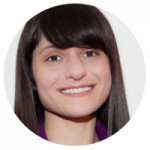
Dr. Maya Katz is an Assistant Professor of Neurology at the UCSF Movement Disorders and Neuromodulation Center. She specializes in the treatment of Parkinson’s disease and related disorders. Her research interests include identifying neuroprotective strategies and improving outcomes for patients treated with deep brain stimulation. She is the Co-Director of the UCSF Movement Disorders Palliative and Supportive Care Clinic, which provides comprehensive interdisciplinary care to optimize all aspects of wellbeing and quality of life.
Dr. Katz obtained her medical degree at Cornell University. She completed her residency in Neurology at Mount Sinai Medical Center, where she served as chief resident. She then completed her Movement Disorders Fellowship at UCSF in 2013. Dr. Katz is board certified in Neurology and is an active member of the American Academy of Neurology and the International Parkinson and Movement Disorder Society.
Thanks for Listening!
To share your thoughts:
- Leave a note in the comment section below.
- Ask a question by emailing us here.
- Share this show on Facebook.
To help out the show:
- Leave an honest review on iTunes. Your ratings and reviews really help, and we read each one.
- Subscribe on iTunes.


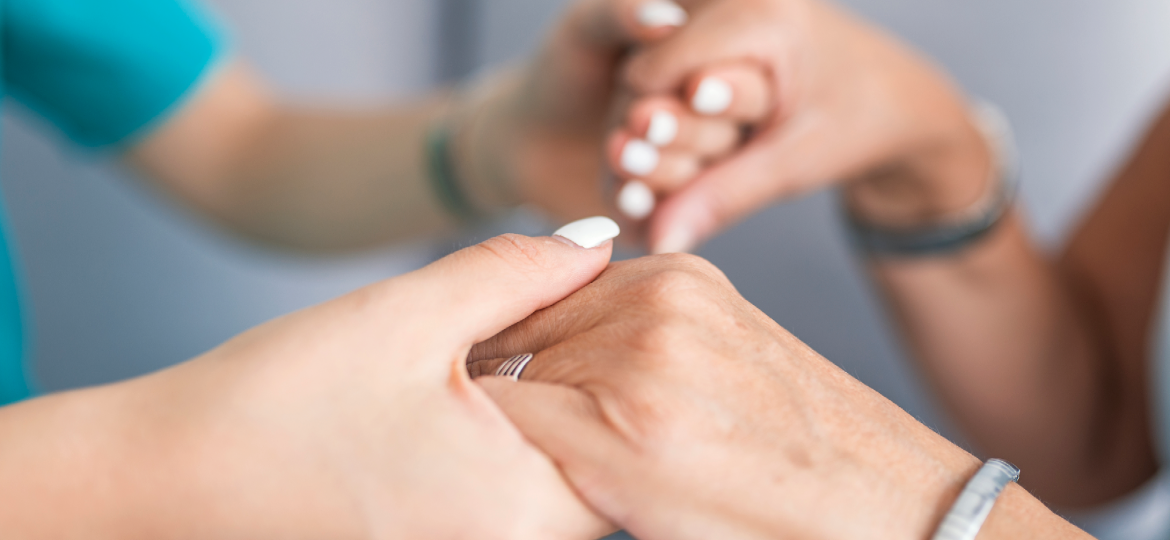
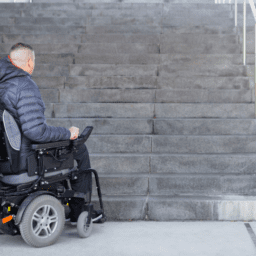
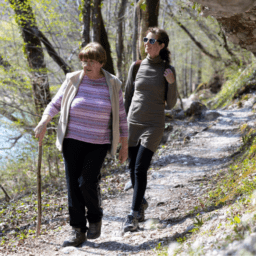
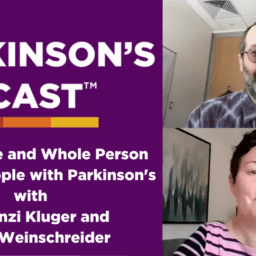
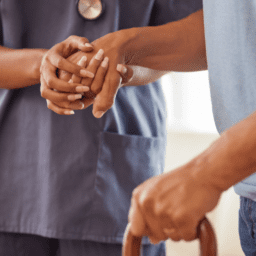

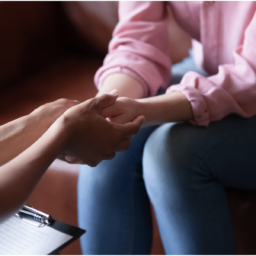
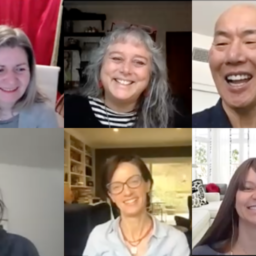


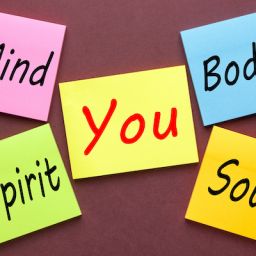
If we are dx at younger age with school age family at home, it seems we are doomed to keep on working full time to support our family, while watching our health go down, because our days and years remaining are spent slaving away to make a living, instead of exercising as the retires just dx can do! Why must we wait for our body to rot before we can qualify for disability and be able to spend our days preventing the progression?
Hi Joe – Thanks for listening to our interview with Dr. Maya Katz. We’ve heard from a lot of people who are in a similar situation as you and understand the frustration of trying to take care of yourself while also making sure you have the time, money and resources to take care of your family over the long-term. While it sounds like time is very tight for you, even just short bouts of exercise throughout the day can have a positive effect on Parkinson’s symptoms. I know it’s not ideal, and it can be difficult to get an exercise plan going when you already have so many responsibilities; however, exercise is the one thing that truly can make a difference in how you feel on a day-to-day basis. Even better if you can find something you love to do that not only helps relieve your Parkinson’s symptoms but makes you very happy in the process. Perhaps starting with small exercise goals for 2019 will make it seem more doable and sustainable?
All the best to you.
Really really enjoyed these podcasts,super informative,surely hope they continue for another year..looking forward to starting the Resilience class on the 30th..,ideas for podcast…new trends,boxing, exercise,more caregiving hints,occupational,speech,physical therapy,hints
Thanks for the ideas, Mary. I’m glad you enjoyed the podcast, and we’re looking forward to having you in class.